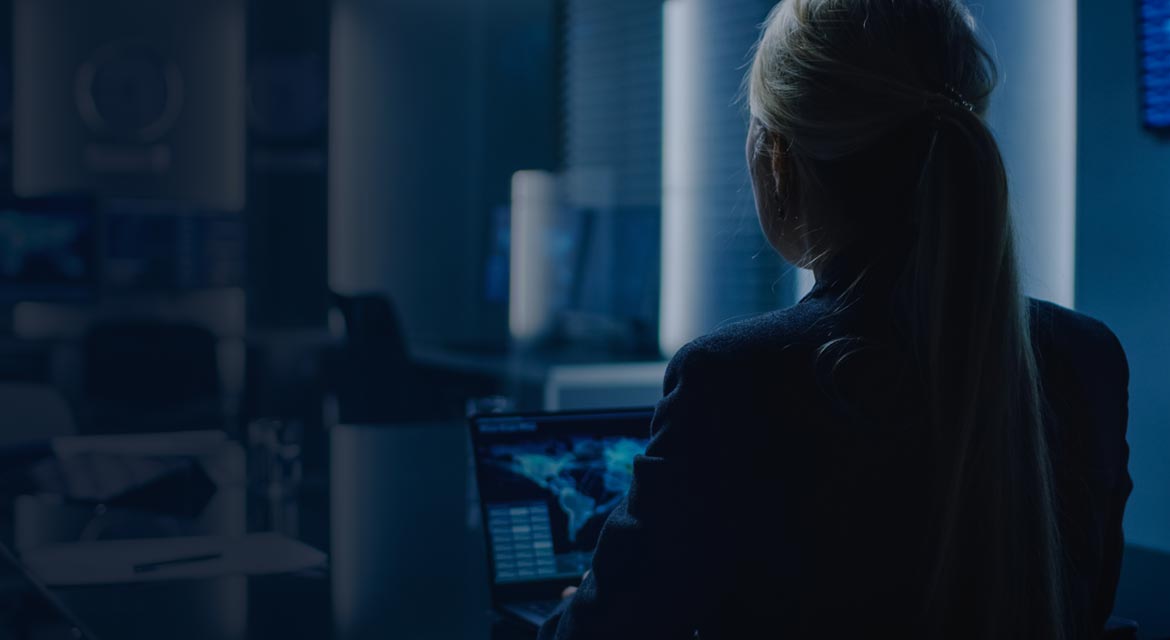Meet Paulette,* one of the brilliant threat intelligence analysts who works with UJA’s Community Security Initiative (CSI), a joint program with JCRC-NY. Paulette and her colleagues are charged with helping secure 2,400 local Jewish institutions, monitoring the web for threats, and working closely with law enforcement. Back in 2021, we talked with Paulette about rising antisemitism. Three years later and six months into the war in Israel, we checked in to get her take on what’s changed — and what’s the same.

Can you describe what you saw after October 7 in terms of antisemitism?
October 7 to December was a free-for-all; there were insane amounts of explicit antisemitic and anti-Israel incidents. Over 100 shuls received bomb threats. The onslaught of incidents climbed till December, and then we saw somewhat of a drop. In March we saw another upward trend. You could say it’s “back to our regularly scheduled program of antisemitism, but trending in the wrong direction.” Year to date the incidents are still trending higher than the year before, which was higher than the year before that, and higher than the year before that.
Anything surprising about how this has unfolded?
It’s surprising how prevalent explicit support for terror groups and violence has become — both at in-person events and in the propaganda materials circulating across mainstream social media. Student groups are sharing designated terror groups’ propaganda and hosting affiliates for student-run events. Pictures of known terrorists and terror group flags crop up at protests. It’s also surprising how certain progressive groups — whether explicitly or implicitly — are aligning themselves with Hamas’s campaign as Hamas is not exactly a bastion of liberal ideology.
How do you categorize words that are an appropriate expression of protest vs. antisemitic or threatening content?
If somebody were to write “Free Palestine” with chalk on the sidewalk in front of their house or on a public sidewalk, that’s their prerogative. However, if somebody graffitis those same words on a synagogue or harasses visibly Jewish people about the current war, you’re now targeting Jews. We also consider slogans like “Resistance by any means” or calls for “intifada” as supporting acts of terror and violence.
Have you seen anything surprising from the far right?
After October 7, there were neo-Nazi groups that suggested this idea of “one enemy one struggle,” with a Nazi fighter and Hamas fighter standing back-to-back.
Is it worth speaking out or arguing with “the other side” whether online and/or in person? When does one engage?
On social media, the impulse to share things or react can give fuel to a fire. It’s a personal choice, but I don’t think social media activism is always helpful. In person, if you encounter someone who is willing to engage in thoughtful dialogue, it’s important to show you’re willing to engage. But be conscious that not everyone will be a willing partner in that, so you need to be smart and careful.
How do you deal emotionally with the hate and vitriol you see daily?
After October 7, I was describing my job as trauma surgeon: everything was clinical — you stop the bleeding here, keep your head down. Get through it. It took me till January and February to fully process and grieve what had happened that day. And then I did.
*name has been changed to maintain privacy.